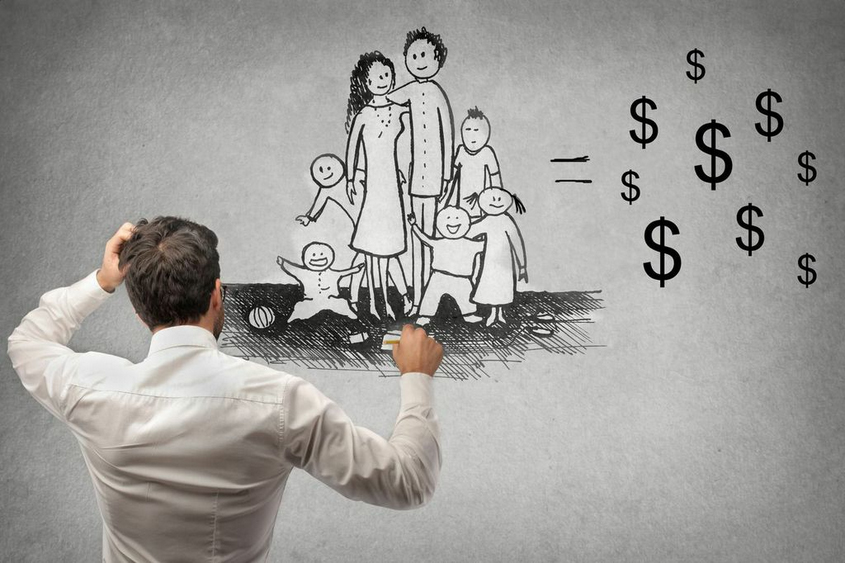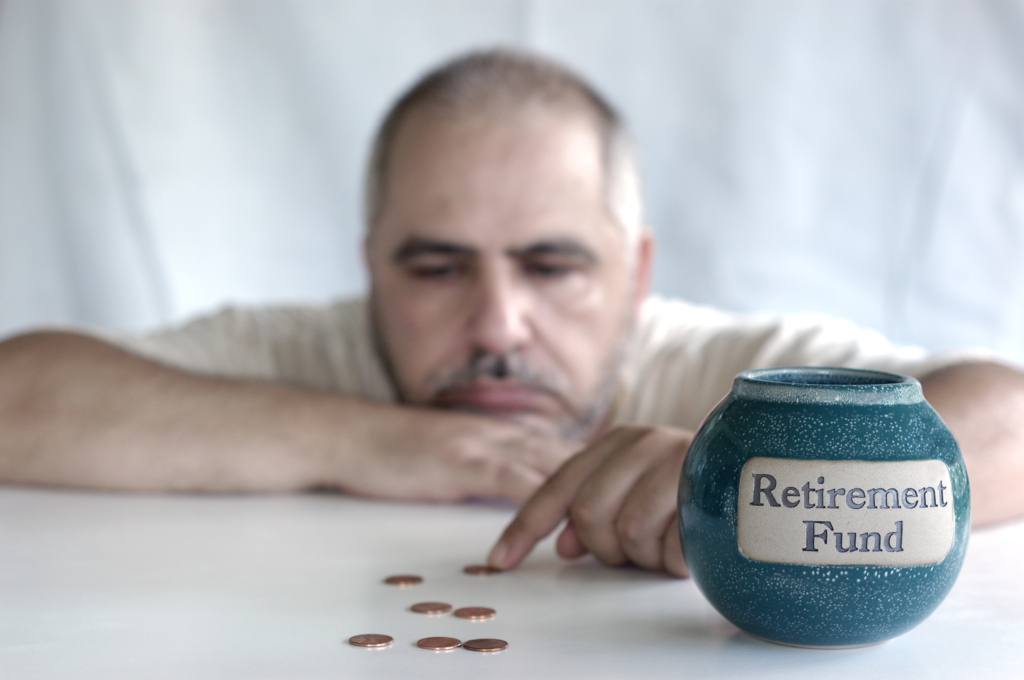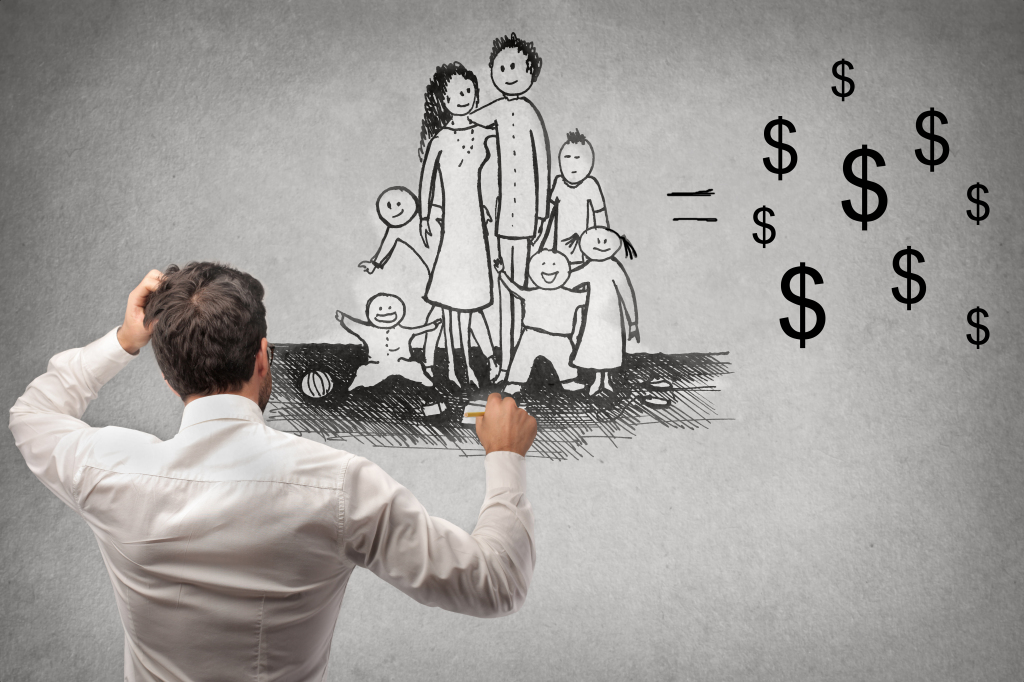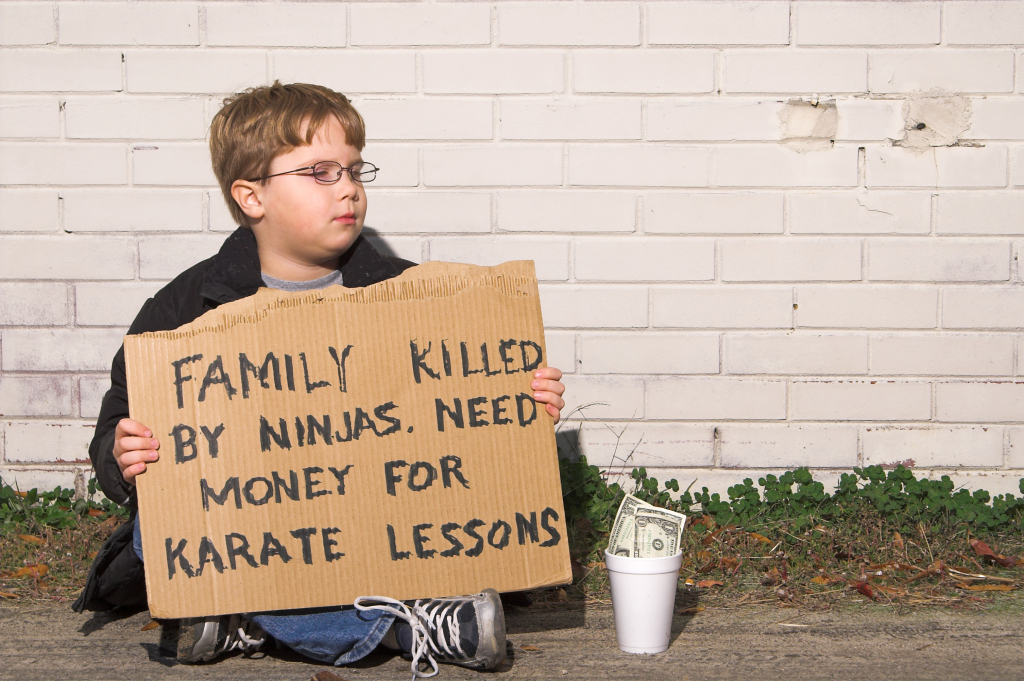By Lacey Filipich, BEng(Hons), MAICD
‘He had heard people speak contemptuously of money:
he wondered if they had ever tried to do without it.’
– W. Somerset Maugham (1874 – 1965)
In 2005, I watched an Australian film called Three Dollars and was traumatised by it. It’s not a horror film – I just found it confronting, depressing and very plausible. The main character, Eddie, is a successful chemical engineer living in a beautiful home in Melbourne with his lovely wife and daughter… until Eddie gets the chop from his job. In a matter of weeks his life unravels, as he cannot find a job but cannot bring himself to tell the family. He can’t afford his car or the mortgage. Eventually even affording food becomes a challenge. I think I found it so traumatic because it brings into focus that we tend to live life blissfully unaware of how close we probably are to financial ruin should something terrible – like a debilitating illness or job loss – happen. Being a recently graduated chemical engineer didn’t help. It may be the only time I’ve seen a chemical engineer as the main character in a film, and what happens? He ends up eating from a trashcan. Wonderful.
I was reminded of that film when I read the ACOSS Poverty in Australia 2014 report. Another traumatic experience, I must say, and all the more so for being a true story. It is a depressing read with the bottom line being one in every seven Australians lives below the poverty line. Even worse, it’s one in six for children. That means that if you have a child in primary school, between three and five of their class-mates are likely to be living below the poverty line.
What is the poverty line?
The Australian ACOSS report uses 50% of median income and calculates so it:
- Is after tax.
- Includes any social security payments (i.e. from Centrelink).
- Excludes housing costs: mortgage, rent, rates.
This obviously distorts the impact as people with cheaper accommodation, for example that own their own home or who share-house, will have lower housing costs and therefore lower total costs. Ignoring that, the report offers four poverty lines by family type:
- Single adult: $400.30 per week ($20,816 per year).
- Couple, no kids: $600.40 per week ($31,221 per year).
- Single parent, two kids: $640.40 per week ($33,301 per year).
- Couple, two kids: $840.60 per week ($43,711 per year).
You don’t have to be a genius to work out that $840.60 per week is not much to keep two adults and two children clothed, fed, healthy, and transported wherever they need to be for school and work. There’s potential for a lot of baked-beans-on-toast for dinner in that circumstance.
But what does poverty really mean?
Quoting from the above-mentioned report:
‘Poverty is defined as the pronounced deprivation of well-being,
or the inability to satisfy one’s basic needs.’
– Dr David Morawetz, Director, Social Justice Fund
One person in every seven is unable to satisfy basic needs – food, shelter, warmth, medical treatment – in Australia? Please say it ain’t so… Further:
‘Poverty is not just about income, it is about the lack of opportunities
and social participation that most of us take for granted.’
– Major Kelvin Alley, National Secretariat, The Salvation Army
It means that in the next year, a household living in poverty will likely experience at least three of the following ‘financial stress’ measures quoted in the report:
- Cannot afford to heat their home
- Cannot pay gas/electricity/telephone bill on time
- Cannot pay registration/insurance on time
- Will buy second hand clothes most of the time (cannot afford new clothes)
- Will go without meals
- Will not spend time on leisure or hobby activities
- Cannot afford a special meal once a week
- Cannot afford a night out once a fortnight
- Cannot afford to have friends or family over for a meal once a month
- Cannot afford a holiday away from home for at least one week a year
- Will pawn or sell something
- Will seek financial help from friends/family
- Will seek assistance from welfare/community organisations
Sounds downright horrid, yet over two and half million people in this country live under these conditions. I’m shocked and more than a little appalled.
Who is most vulnerable?
This is where the ovarian lottery can really suck. There are a number of factors that make a person more likely to live below the poverty line in Australia, and some are completely beyond your control. Such factors include (with the % of that demographic living under the poverty line shown in brackets):
- Being female (14.7% of all women vs. 13.0% of all men)
- Being young (17.7% of people under 15 years old live in poverty)
- Being old (14.8% of people over 64 years old)
- Being born in a country where English is not the primary language (18.8% of all people meeting this criteria)
- Being Aboriginal or a Torres Strait Islander (19.3% of the indigenous population)
- Having a disability (27.4% of all people with disabilities)
There are a number of additional higher-risk categories. While not 100% in your control, these categories are not determined at birth and therefore can be influenced. They include:
- Being single (27.7% of all singles)
- Family type (33% of all single parents and 36.8% of all children in a single-parent home)
- Being unemployed (61.2% of all unemployed)
- Relying on social security (i.e. Centrelink) for main source of income (40.1% of all people receiving welfare)
None of these categories surprised me. If I was going to come up with a list of demographics that might be more common among those living below the poverty line, it probably would have included at least half of these. But NOT being in these categories does not preclude you from ever being in poverty – among the 2.5 million Australians living below the poverty line, there are probably Australian-born white males who live with their wife and children and are employed. So no one has any excuse to think it can’t happen to them.
What can you do about it?
I’d love to say that reform and policy change are the answer. Perhaps they are, I don’t know. What I do know is: such solutions won’t make a jot of difference to the people living like this right now. Tomorrow morning they’ll still be poor. Also, it may never happen – governments are nothing if not unreliable. In circumstances like these, where health and well-being are at risk, individuals have to do everything they can to help themselves.
So first things first: if you’re not already living below the poverty line… try to avoid it!
How? My suggestions aren’t necessarily easy, but they’re straightforward:
1. Save, save, save
I have enough money to last me the rest of my life,
unless I buy something.
Jackie Mason (1934 – )
Having a buffer of savings in cash is not just a good idea, it’s downright essential. Being able to lay your hands on some cash to cover a tight period – between jobs, recovering from a marriage break-up, healing from illness or injury – will mean you don’t have to live without the basics for at least a period of time. How much to save? That’s up to you. I don’t feel comfortable with less than one year’s living costs in the bank. If that’s simply impossible for you, aim for one month of living costs at first and build from there. The best time to save is of course when you have more money than you need – make hay while the sun shines and all that. So don’t wait till disaster strikes to start hoarding cash. Do it NOW!
2. Seek employment
It’s no guarantee – you can still slave away for hours to earn a pittance in some menial jobs – but it’s a good start. Almost any job is better than a gap on your resume if you’re struggling to make ends meet. Having a job shows you’re reliable, that you can contribute and that you want to work. Even if it’s not your dream job, don’t fall into the trap of ‘I’ll just have six months on the dole for a break, then I’ll get the job of my dreams.’ The downward spiral of social security dependency is quick and relentless, and it will take a lot more effort to get out of that particular spiral than it did to get into it. Not to mention the negative effects dependency can have on your self-esteem and mental well-being.
3. Share housing
In an ideal world, you would share a home with your beloved and your adorable offspring (if you have any). Couples and families share most things – food, bills, toothpaste – so there are savings to be had just by being under the one roof and all using the same brand of shampoo. So, if you can manage it, stay together.
If you can’t stay together and you just HAVE to move out, or if you’re on your own, think carefully about where you’re going to live. Don’t just leap into a rental agreement for a home only slightly less per week than you currently share with your no-longer-beloved. Can you rent something (much) cheaper and still keep everyone relatively happy? Do you have any single friends or family who would be willing to share a house with you? Sacrificing some privacy and reduced decision-making power over which TV channel you’re watching tonight may be worth it to spend less on your living costs.
4. Plan your spending. In detail.
Why is there so much month left
at the end of the money?
– John Barrymore
If you’re a bit short on cash, now is the time to avoid any frivolous or unnecessary spending. It may be heart-wrenching to say ‘no’ to the kids every time they ask for an ice-cream, but if getting that ice-cream means you can’t afford veggies it may not be a good choice every week (once in a while? Sure, but not all the time). Once you’ve listed all the items you’re planning to spend money on, start working out which items you can live without and whether there are any you can get cheaper. Can you get a cheaper mobile phone plan from another provider, or by going pre-paid? Can you shop at the local farmers market instead of buying veggies in the big supermarkets (sorry, but the big ones are ridiculously overpriced). Can you rent an electrical appliance instead of forking out the cash to buy it?
And if that doesn’t work?
Can’t save?
Can’t find a job?
Can’t find suitable share accommodation?
Budgeted to within five cents?
Already under the poverty line?
Don’t panic.
Living on a low income is not necessarily fatal. We have a number of charitable organisations that provide free or very cheap food, clothing and housing to those in dire need. In the short-term, you can seek help through them as well as through Centrelink. Now that I reflect on it, I have known a few families living below the poverty line and, by and large, they have all flourished over time. There were rough patches where my friends couldn’t come roller-skating, or they were wearing last year’s clothes with some skilful darning, but that changed within a few years.
It’s also a free lesson for your kids:
The easiest way for your children to learn about money
is for you not to have any.
– Katharine Whitehorn
And let’s not forget the proverbial student pauper. I’ve known legions of them in my time. I had a room-mate who subsisted on tinned baked beans and spaghetti FOR AN ENTIRE YEAR. I used to cook him dinner once a week and he nearly licked the plate every time. Sharing a bathroom wasn’t ideal, but that’s what toilet sprays are for. All the student paupers I knew went on to graduate, and most of them now have income to support themselves and the family members they’re accumulated along the way. Those that don’t generally married someone who did, or moved overseas.
On top of that, in my personal experience I have failed to find a correlation between income and happiness. I know some absolutely miserable people with bucketloads of cash.
If you are in a tight financial spot, or you’re one of the 2.5 million below our poverty line, take heart. Things can and will change over time. Do what you can to stay positive and keep trying to make changes that will make things better for you. Remember:
‘Poverty cannot deprive us of many consolations.
It cannot rob us of the affection we have for each other, or degrade us in our own opinion,
or in that of any person, whose opinion we ought to value.’
– Ann Radcliffe, The Mysteries of Udolpho, 1764




